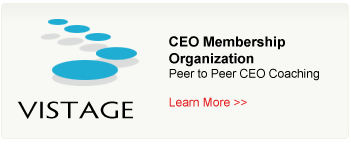Habits That Are Good For You — An Innovation For Every Leader
Dr. Val Curtis, an anthropologist living in Burkina Faso decided that extreme measures are necessary to save millions of children in Africa from death and disease. What is unique is where she found a solution: consumer marketing. What is powerful, is how this applies to restoring integrity and transparency to American business landscape.
As Charles Duhigg of the New York Times (July 13, 2008) indicates, half the deaths are preventable simply by frequent washing of the hands with soap. The catch? Getting people to do this has been near impossible.
Curtis turned to “soapers” like P&G whose expertise now includes understanding what messages cause new habits to be created. “Our products succeed when they become part of daily or weekly patterns,” said consumer psychologist Carol Berning, retired from P&G.
What causes a new habit to be created? Understanding the cues that underly current habits like checking email or brushing our teeth. In particular, the cues operating in (1) a specific location or time of day, (2) a certain series of actions, (3) particular moods and (4) the company of specific people. Now I wont say I know the list of cues that cause people to eat more or eat the wrong foods or to check email. What I do believe is that when our memory stimulates a desire associated with a specific activity or place or mood or people we do things habitually. And when we know enough about people’s daily activities and associations, we can create new habits.
Numerous health campaigns failed to persuade Africans of the benefits of hand-washing. But an ad campaign selling “disgust” — sh0wing mothers with unwashed hands emerging from the toilet with a purple stain that contaminated everything they touched including their children — the result was 41% increase in washing before eating and 13% after visits to the toilet.
We have an epidemic in America — a lack of transparency and integrity in our institutions (government, corporations, religious organizations). It is destroying trust in the system, respect for law and any benefit of the doubt that we used to give other people. For years I have believed enough CEOs to act with good purpose that their own authentic behavior and occasional Signal Acts (ceremoniously expelling violators from the ranks, recognizing and rewarding someone whose information or action led to the cessation of unethical practices), but no longer.
We need a campaign to instill a habit of ethical behavior and peer pressure for that habit by connecting the dots: the most frequent violations of ethical standards with daily activities, daily locations, daily meetings and daily moods. Developing such a campaign will take research, insight and determination. But it will pay off far in ways that fear of regulations cannot.
 Countless more ordinary people of equal talent never developed the leadership core required to run the show. Why not?
Countless more ordinary people of equal talent never developed the leadership core required to run the show. Why not?

Tue, Jul 15, 2008
Leadership Development